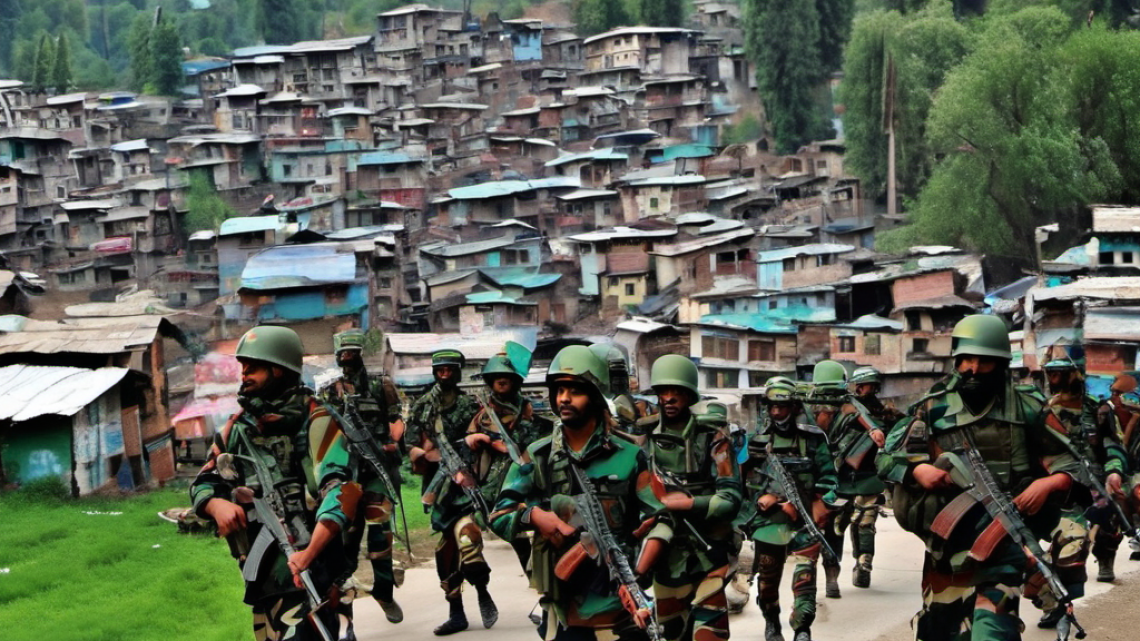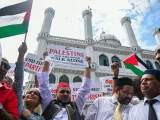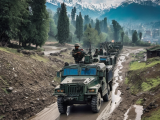
Suppression in Kashmir: BJP’s Militarized Strategy and the Struggle for Freedom
June 3, 2024The Bharatiya Janata Party (BJP)-led Indian government is deploying its armed forces and intelligence agencies, such as the National Investigation Agency (NIA) and State Investigation Agency (SIA), as instruments of Hindutva ideology to suppress the ongoing freedom movement in Indian-illegally occupied Jammu and Kashmir. This strategy aims to coerce the Kashmiri population into submission through widespread intimidation and harassment.
Indian forces, including the army, Rashtriya Rifles, Central Reserve Police Force, and Special Operation Group, alongside the NIA and SIA, are conducting daily raids throughout the region. These operations are designed to intimidate residents who resist conforming to the RSS/BJP’s Hindutva agenda. The frequent and aggressive raids have led to severe harassment of local populations, contributing to an atmosphere of fear and repression.
The judiciary has also been co-opted in this campaign, with authorities using draconian laws to target Kashmiris committed to the struggle for self-determination. Despite the intense repression, the Kashmiri people remain resolute in their fight for freedom. According to a statement issued by Adv Abdul Rashid Minhas, spokesman for the All Parties Hurriyat Conference (APHC) in Srinagar, the Indian government’s oppressive tactics have intensified significantly since the abrogation of Article 370 on August 5, 2019, which stripped the region of its special autonomy. Minhas described the situation in Kashmir as a living hell and warned that India’s militarized approach threatens regional and global peace and security.
The APHC has made a fervent appeal to the international community, particularly the United Nations, to recognize and address the plight of the Kashmiri people. They urged the UN to compel India to resolve the Kashmir dispute promptly, highlighting the legitimacy of the Kashmiris’ struggle under the UN Charter.
The BJP’s strategy in Kashmir is part of a broader agenda to consolidate control over the region through militarization and legal repression. This approach has exacerbated tensions and fueled resistance, as the Kashmiri people continue to assert their right to self-determination. The heavy-handed tactics employed by Indian forces have drawn criticism from human rights organizations and have spotlighted the urgent need for international intervention.
The ongoing situation in Jammu and Kashmir underscores the profound challenges faced by the local population under an increasingly authoritarian regime. The persistence of daily raids, judicial oppression, and the use of military force highlight the extent to which the BJP government is willing to go to suppress dissent. Yet, the resilience and determination of the Kashmiri people serve as a powerful testament to their enduring quest for freedom.
As the global community watches, the call for a peaceful resolution to the Kashmir conflict grows louder. The need for dialogue, respect for human rights, and adherence to international legal standards is paramount to ensuring a just and lasting peace in the region. The international community must heed the cries of the Kashmiri people and work towards facilitating a resolution that honors their right to self-determination and ensures regional stability.

